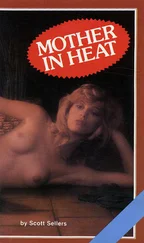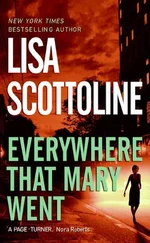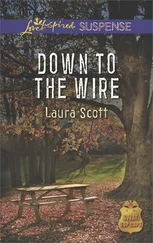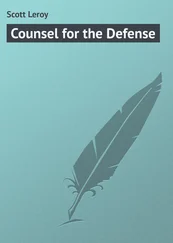Leroy Scott - To Him That Hath
Здесь есть возможность читать онлайн «Leroy Scott - To Him That Hath» — ознакомительный отрывок электронной книги совершенно бесплатно, а после прочтения отрывка купить полную версию. В некоторых случаях можно слушать аудио, скачать через торрент в формате fb2 и присутствует краткое содержание. Жанр: foreign_prose, Зарубежные любовные романы, на английском языке. Описание произведения, (предисловие) а так же отзывы посетителей доступны на портале библиотеки ЛибКат.
- Название:To Him That Hath
- Автор:
- Жанр:
- Год:неизвестен
- ISBN:нет данных
- Рейтинг книги:4 / 5. Голосов: 1
-
Избранное:Добавить в избранное
- Отзывы:
-
Ваша оценка:
- 80
- 1
- 2
- 3
- 4
- 5
To Him That Hath: краткое содержание, описание и аннотация
Предлагаем к чтению аннотацию, описание, краткое содержание или предисловие (зависит от того, что написал сам автор книги «To Him That Hath»). Если вы не нашли необходимую информацию о книге — напишите в комментариях, мы постараемся отыскать её.
To Him That Hath — читать онлайн ознакомительный отрывок
Ниже представлен текст книги, разбитый по страницам. Система сохранения места последней прочитанной страницы, позволяет с удобством читать онлайн бесплатно книгу «To Him That Hath», без необходимости каждый раз заново искать на чём Вы остановились. Поставьте закладку, и сможете в любой момент перейти на страницу, на которой закончили чтение.
Интервал:
Закладка:
After filling the forenoon by writing for his belongings, which his New Jersey landlady had promised to keep till he should send for them, and by dreaming of the future, David set out for the hurly-burly that seethes within and without the sky-supporting buildings of Park Row. At the entrance to the first newspaper office, his courage suddenly all flowed from him. Would he be recognised as a jail-bird? His ill-fitting prison-made suit, that clothed him in reproach, that burned him – was it not an announcement of his record? He turned away in panic.
But he had to go in, and fiercely mastering his throbbing agitation, he returned to the office and entered. The city editor, a sharp-faced young man, after hearing that David had no newspaper experience, snapped out in a quick voice, "Sorry, for I need a man – but I've got no time to break in a green hand," and the following instant was shouting to a "copy" boy for proofs.
At the next place the slip on which David had been required to write his business, came back to him with the two added words, "Nothing doing." At the third place the returned slip bore the statement, "Got all the men I need." The fourth editor, whom he saw, gave him a short negative. The fifth editor sent word by mouth of the office boy that his staff was full. It required all David's determination to mount to the sixth office, that of an able and aggressively respectable paper.
The boy who took in his request to the city editor returned at once and led David across a large dingy room, with littered floor, and grime-streaked windows. Young men, coatless, high-geared, sat at desks scribbling with pencils and clicking typewriters; boys, answering the quick cries of "copy!" scurried about through the heavy tobacco smoke. The room was a rectangular solid of bustling intensity.
The city editor, who occupied a corner of the room, waved David to a chair. Again David repeated the formula of his desire, and again he was asked his experience.
"I've had no experience on a paper," he replied, "but I've done a lot of writing in a private way."
"You're practically a new man, then." The editor thought for a moment, and David eagerly watched his face. It was business-like, but kindly. "Why, I guess I might take the trouble to lick a man into shape – if he seemed to have the right stuff in him. Anyhow, I might give you a trial. But you're not very young to be just beginning the game. What've you been working at?"
David felt the guilty colour warming his cheeks. "Writing."
"All the time?"
He tried to speak naturally. "The last few years I have been trying to do some – manual work."
"Here in the city?"
"No. Out of town."
The editor could not but notice David's flushed face and its strained look. He eyed David narrowly, and his brow wrinkled in thought. David strove to force a natural look upon his face. "Aldrich," the editor said to himself, "Aldrich – David Aldrich you said. That sounds familiar. Where have I heard that in the last few days?"
"I don't know," said David, his lips dry; but he thought of a paragraph he had read on the ride from prison announcing his discharge.
"O-o-h!" said the editor, and his eyes sharpened. David understood. The editor had also remembered the paragraph.
The editor's gaze dropped to his desk, as though embarrassed. "I'm very sorry – but I'm afraid I can't use you after all. I really don't need any men. But I hope you'll find something without trouble."
The blow was gently delivered, but it was still a blow – one that, as he walked dazedly from the office, made his courage totter. He told himself that he had counted upon just such experiences as this, that he had planned for a month of rebuffs – and gradually, as the evening wore away, he preached spirit back into himself. However, he would make no further attempts to find newspaper work. Even should he be so lucky as to secure a place, some one of the score or two score fellow-workers would be certain to connect him with the newly-liberated convict, as the editor had done, and then – discharge. For the present, it would be better to seek a position among the large business houses.
At dawn the next morning David was reading the "Help Wanted" columns of a newspaper, and two hours later he was sitting in the office of the superintendent of the shipping department of a wholesale dress-goods house that had advertised for a shipping clerk. The superintendent scrutinised David's face, making David feel that the prison mark was appearing, like an image on a developing plate, and then demanded: "Why do you want a job like this? This ain't your class."
"Because I need it."
"Had any experience as a shipping clerk?"
"No. But I'm mighty willing to learn."
"Well, let's see your letters from previous employers."
David hesitated. "I have none." He felt the red proclamation of his record begin to burn in his cheeks.
"Have none!" The superintendent looked suspicious. "No references at all?"
David shook his head; his cheeks flamed redder.
"Who've you worked for?"
To mention here his four years of writing would be absurd. "No one," he stammered – "that is, I've had no business experience."
The superintendent's reply came out sharply: "No experience – no references – can't use you. Good morning."
David stumbled out, not noticing the relief his dejection gave the other applicants waiting outside the office. He saw the difficulty of his situation with a new, startling clearness; the superintendent had summed it up with business-like conciseness – "no experience, no references." A sudden fear, a sudden consternation, clutched him. Would he ever be able to pass that great wall standing between him and a position? – that wall builded of his prison record, of no experience, of no references?
Whether or not, he must try. He hurried to another office that had advertised for help, and to another, and to another – and so on for days. Usually he was turned away because there was really no work, but several times because to the penetrating questions he could return only his distrust-rousing answers. His courage tried to escape; but he caught it and held it, desperately.
Saturday evening an expressman delivered a box sent by his old New Jersey landlady. The charge was a dollar, and the dollar's payment was a tragedy. The box contained only a few of the things he had left behind him. His landlady, though kind, was careless, his things had become scattered during the four years, and the contents of the box were all she had been able to get together. There were a few of his books, a few photographs and prints, a few ornaments, a pair of boxing gloves, most of his manuscripts, and an overcoat. The overcoat at least was worth having, with cool weather but a few weeks off.
The second week was an elaboration of the first few days, and the first half of the third was the same. Then he had three days' work at addressing envelopes – girls' work and boys' work, for which he was paid eighty-five cents a day. Then the search again.
At length he found a place. It was in a small department store in One Hundred and Twenty-fifth Street – a store that in fifteen years had developed from a notion shop occupying a mere hole in the wall. The proprietor was one of those men who do not see the master chances, the thousands and the millions, but who see a multitude of little chances, the pennies and the dollars. He squeezed his creditors, his customers, his shopgirls – kept open later than other stores to squeeze a few last drops of profit from the day. His success was the sum of thousands of petty advantages.
When David came to him he saw that here was a man in cruel need. The labour of a man in cruel need is yours at your own price – is, in fact, a bargain. He had had enough experience with bargains in merchandise to know that when a rarely good bargain offers it is best to snap it up and not question too closely into the reasons for its cheapness. So he offered David a place in the kitchen furnishing department. Salary, five dollars a week.
Читать дальшеИнтервал:
Закладка:
Похожие книги на «To Him That Hath»
Представляем Вашему вниманию похожие книги на «To Him That Hath» списком для выбора. Мы отобрали схожую по названию и смыслу литературу в надежде предоставить читателям больше вариантов отыскать новые, интересные, ещё непрочитанные произведения.
Обсуждение, отзывы о книге «To Him That Hath» и просто собственные мнения читателей. Оставьте ваши комментарии, напишите, что Вы думаете о произведении, его смысле или главных героях. Укажите что конкретно понравилось, а что нет, и почему Вы так считаете.












